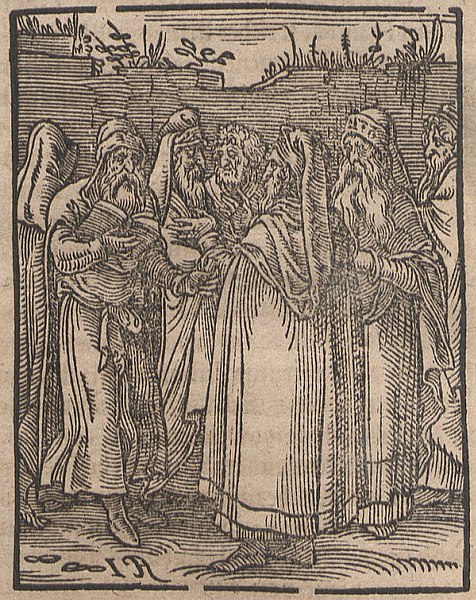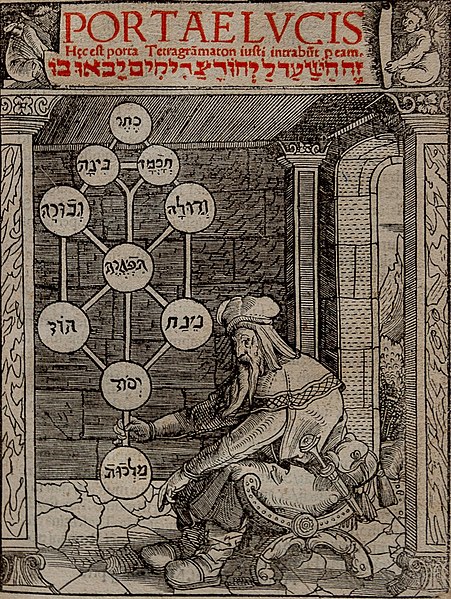Rabbi Yehuda Ashlag (1885–1954) or Yehuda Leib Ha-Levi Ashlag, also known as the Baal Ha-Sulam in reference to his magnum opus, was an orthodox rabbi and kabbalist born in Łuków, Congress Poland, Russian Empire, to a family of scholars connected to the Hasidic courts of Porisov and Belz. Rabbi Ashlag lived in the Holy Land from 1922 until his death in 1954. In addition to his Sulam commentary on the Zohar, his other primary work, Talmud Eser Sefirot is regarded as the central textbook for students of Kabbalah. Ashlag systematically interpreted the wisdom and promoted its wide dissemination. In line with his directives, many contemporary adherents of Ashlag's teachings strive to spread Kabbalah to the masses.
Yehuda Ashlag
Ohel of Yehuda Ashlag on Har HaMenuchot
Kabbalah or Qabalah is an esoteric method, discipline and school of thought in Jewish mysticism. A traditional Kabbalist is called a Mekubbal. The definition of Kabbalah varies according to the tradition and aims of those following it, from its origin in medieval Judaism to its later adaptations in Western esotericism. Jewish Kabbalah is a set of esoteric teachings meant to explain the relationship between the unchanging, eternal God—the mysterious Ein Sof —and the mortal, finite universe. It forms the foundation of mystical religious interpretations within Judaism.
Jewish Kabbalists portrayed in 1641; woodcut on paper. Saxon University Library, Dresden.
Kabbalistic prayer book from Italy, 1803. Jewish Museum of Switzerland, Basel.
Latin translation of Gikatilla's Shaarei Ora
Grave of Rabbi Akiva in Tiberias. He features in Hekhalot mystical literature, and as one of the four who entered the Pardes






